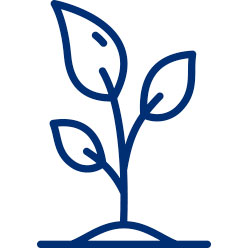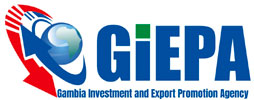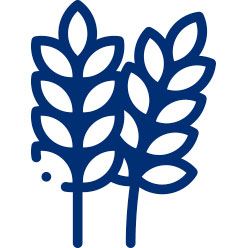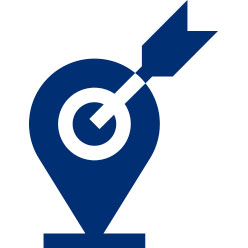Invest in Agribusiness in The Gambia
The Gambia boasts highly fertile lands, a variety of available sites, cost effective labor and attractive sectoral opportunities for the production of field crops, horticultural crops, poultry and livestock, fisheries and aquaculture, and variety of agriculture inputs. A wide variety of incentives are also available for projects in the agribusiness sector.
Top 6 Reasons: Why Investors Should Choose The Gambia for Agribusiness
Strong Demand Outlook
With a steady growing population (3% p.a.), rapid urbanization, growing middle class and increasing tourism – The Gambia presents itself as a compelling destination for agricultural investments with over 550,000 hectares of arable land and plentiful rainfall.
Attractive Sectoral Opportunities
The Gambia has promising sectoral opportunities for investors across the
agricultural value chain.
The top sectoral opportunities for investments include field crops, horticultural crops, poultry & livestock, fisheries and agricultural inputs.
Stable Business & Agribusiness Policy Climate
The Gambia has strong macro-economic fundamentals and a liberal market-based economy.
The Gambia also offers a variety of incentives for investors in the Agribusiness sector.
Preferential Market Access
The Gambia continues to benefit from sub-regional re-export trade as industries profit from the country’s liberal trade policies and strategic port location.
The country enjoys preferential market access to key markets such as the European Union, USA, ECOWAS, AGOA, AfCFTA and OIC.
Skilled & Cost Effective Labor
The Gambian workforce is one of the country’s principal assets, spurring considerable enthusiasm among business people, both foreign and domestic.
The Gambia has an estimated labor force of 969,000 people in 2023, 3.1% higher than in 2022.
Available Land & Infrastructure
The Government of The Gambia has already made significant investments to improve infrastructure and is committed to continue doing so, as detailed in the National Export Strategy.
Over the past decade, the total length of road has increased considerably coupled with investments in the energy arena and a $14m investment to renovate the country’s airport.
The Gambia also has a variety of fertile land well suited for agricultural production.
Snapshot of the Agribusiness Sector in The Gambia
 48%
48%
of Gambians are employed by the agribusiness sector
 25%
25%
contribution of the agribusiness sector towards GDP
 $400m
$400m
value added by the agribusiness sector
 550k ha
550k ha
of arable land mass
 1096mm
1096mm
of average annual precipitation
 90%
90%
of export earnings is derived from agricultural exports
 50%
50%
of food needs are met by current agricultural production
Sources:
https://www.theglobaleconomy.com/Gambia/
https://www.giepa.gm/media/userfiles/subsite_199/files/agriculture/Gambia-Agribusiness.pdf
https://riceforafrica.net/wp-content/uploads/2023/08/gambia_rsds2.pdf










